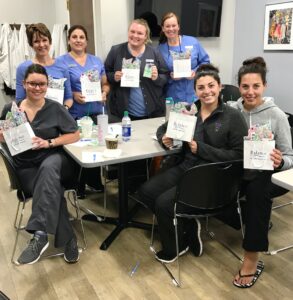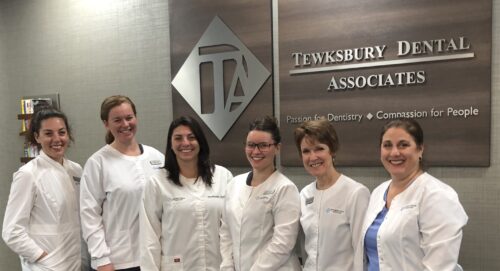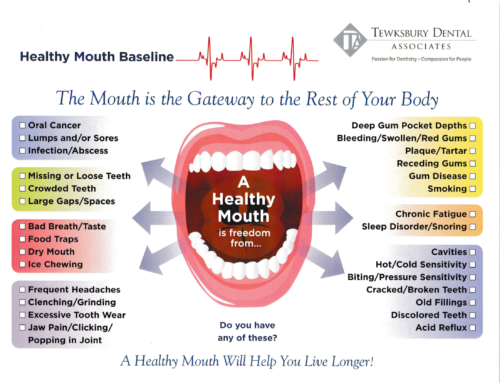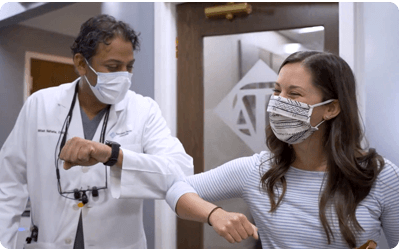As we wrap up October 2019 and another Dental Hygiene Month, we would like to take this opportunity to offer a most sincere expression of gratitude and appreciation to the entire TDA hygiene team.

Thank you: Jen, Stephanie, Christina, Alyssa, Siobhan, Angela, and Maryellen for all that you do. We hope patients understand and recognize what an important role you play in our practice and with their dental care!
Dental Hygienists 101
One of the most important relationships you can have in the management and maintenance of your health is the one you have with a dental hygienist. By scheduling and keeping regular appointments, recommended by the ADA 2 to 4 times a year, your hygienist gets to spend an hour or so talking about problems, concerns.
They can share their professional opinion and customize recommendations and information about optimal oral health care just for you. Dental hygienists are committed and sincere about ethical practices, and they’re always looking out for what is best for you as a patient.
Our TDA dental hygienists bring a high level of trust and compassion to their work, and they treat our patients like family!
FAQ
What kind of training and education do dental hygienists have?
Dental hygienists are highly trained and educated. Did you know in order to practice, graduation from an accredited dental hygiene program is required?
Typically, two years of pre-requisites including chemistry, biology, and anatomy are taken before any student can continue into an additional two years of clinical dental courses.

Once all college requirements are completed, numerous clinical and written board exams are taken to obtain a dental hygiene license.
Ongoing continuing education requirements are mandatory and necessary to keep on top of best practices, techniques, and treatments. TDA hygienists will be attending Yankee Dental Congress 2020 this year to learn about improving what we do and helping our patients improve their health.
What can I learn from my hygienist to benefit my oral, and overall health?
Hygienists are exceptional patient educators. They are excellent listeners and will ask relevant questions that help them understand the goals and concerns of each individual person they see.
Hygienists specialize in proactive, preventative care and they are committed to helping you understand and participate in your own oral health care. Helping every patient see the relationship between optimal oral health and whole-body health is an important part of the education our dental hygienists provide.
What does the hygienist look for in my hygiene appointments?
Providing the best care includes following clinical protocols that are instrumental in identifying key oral health care issues. Your hygienist has built expertise in areas that complement those of your dentist.
There are many different evaluations that go on in addition to the scaling and polishing of teeth during a hygiene visit. First, a thorough review of medical history that takes your whole body into consideration.

Hygienists perform a periodontal assessment to evaluate gum and bone, take necessary x-rays and photographs to help “see” the whole mouth, check teeth for any cracks, cavities, or trauma, and recommend the most up to date home care techniques. Hygienists also perform head and neck exams, oral cancer screenings, and apply preventative medications to help fight tooth decay!
What does your dental hygienist want YOU to know?
• “Prophylaxis,” often called a “prophy” in your hygiene appointment, is a preventative measure that reduces your risk of disease.
• Gingivitis is inflammation of gum tissue caused by the plaque (bacteria and sticky stuff) that is not removed daily in your home care routine. Inflammation in any area of the body can lead to more serious health conditions. Just as a poor diet can lead to diabetes, gingivitis can lead to bone, gum, and tooth infection also known as periodontal disease.
• Periodontitis is a disease caused by specific bacteria and there is no cure. The same bacteria that cause gum disease can travel through your bloodstream and lead to other medical issues.
• Bleeding during flossing or brushing is not normal. Bacteria that is not removed daily can make gum tissue so irritated it starts to bleed when touched with floss or a toothbrush. Once blood is present the bacteria can now travel throughout the body.
• Without x-rays, we cannot see more than ½ of the mouth.
• Patients who only brush without flossing are only cleaning 60% of their mouths. Flossing is just as important as brushing.
• If you are focused on making healthier lifestyle choices such as the way you eat, or exercise, remember that brushing and flossing is another way to get a big jump on maintaining excellent overall health!






